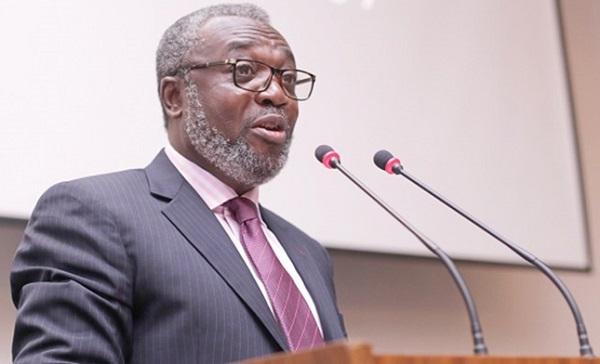
Medication for Sickle Cell may soon be covered by NHIS – Health Service

The Director General of the Ghana Health Service, Dr Anthony Nsiah-Asare, has announced that his outfit is lobbying to add medication for the management of Sickle Cell Disease, hydroxyurea, to the National Health Insurance Scheme.
He believes the move would further help in making the drug affordable and accessible to all Sickle Cell Disease patients.
“We’re also working together with the National Health Insurance Authority to see if we can put hydroxyurea on the list for [Sickle Cell Disease] patients who are on the National Health Insurance. The Chief Executive is here and is working closely together with us [Ghana Health Service] and I hope that after the first consignment of hydroxyurea given to all patients, the sustainability will be there because the National Health Insurance will take over and reimburse all those who are using this medication,” he said.One other initiative which the Sickle Cell Foundation of Ghana is hopeful will bring relief to Sickle Cell patients is the presence of Treatment Centres for Sickle Cell Disease in all regional capitals.
The foundation is currently working with the Ghana Health Service and the Ministry of Health, with support from a multinational pharmaceutical company, Novartis, to bring this to fruition.
Dr Nsiah-Asare, who was speaking at the Inaugural World Sickle Cell Day Lecture on Wednesday, to commemorate World Sickle Cell Day 2019 in Ghana, also announced the establishment of Treatment Centres for Sickle Cell Disease in all regional capitals.
“We’ve signed an agreement where we want to set up centres of excellence in all the 16 regions of Ghana where Sickle Cell patients can be managed and managed properly; where we can do newborn screening to get all Sickle Cell children who are born in this country early enough, diagnosed and managed; where we will also set centres where we will be doing research; and where we can get real figures and also teach. This I am happy to say, we have started. We’ve already signed the agreement which will start this,” he said.
Dr. Nsiah-Asare “and I know Novartis is also working together with us and Zipline to use Zipline to deliver hydroxyurea to children. And we have also told Novartis that apart from this, they should try to bring all the new medications in Sickle Cell management as a clinical trial in this country. Once you [Novartis] do that, we will be making sure that our laboratories are working well. It’s also going to help our scientists to be doing real-time research in such diseases, and who knows. I believe strongly that in the next five to ten years, Ghana is going to be a centre of excellence in Sickle Cell management in Sub-Saharan Africa, and that is going to be what we are going to leave for the good people of this country,” he added.
About Sickle Cell Disease (CSD)
World Sickle Cell Day is a United Nation’s recognised day celebrated on June 19, every year. The day is used to raise awareness of sickle cell at both national and international levels worldwide.
Sickle Cell Disease (SCD) is an illness which affects one’s blood cells and it is genetically acquired when both parents are carriers of the Sickle Cell gene/trait.
This means that one is only born with it after inheriting it from both parents – not just the mother – and it cannot be caught like a cold or an STI as it is not contagious.
This disease can affect anyone at all and about 15,000 babies are born with SCD in Ghana annually. Sadly, between 5% and 9% of these babies do not make it to age 5 but early detection and steady treatment can help reduce this number.
While the screening of newborns for the disease has proven helpful too, the parents’ knowledge of their Haemoglobin type before conceiving a child could offer greater assistance.
Source: citifmonline.com






